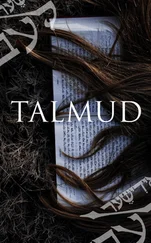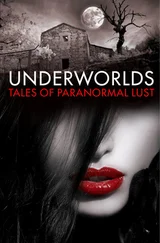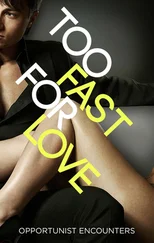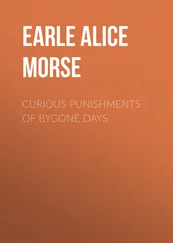Various - Bygone Berkshire
Здесь есть возможность читать онлайн «Various - Bygone Berkshire» — ознакомительный отрывок электронной книги совершенно бесплатно, а после прочтения отрывка купить полную версию. В некоторых случаях можно слушать аудио, скачать через торрент в формате fb2 и присутствует краткое содержание. Жанр: foreign_prose, на английском языке. Описание произведения, (предисловие) а так же отзывы посетителей доступны на портале библиотеки ЛибКат.
- Название:Bygone Berkshire
- Автор:
- Жанр:
- Год:неизвестен
- ISBN:нет данных
- Рейтинг книги:3 / 5. Голосов: 1
-
Избранное:Добавить в избранное
- Отзывы:
-
Ваша оценка:
- 60
- 1
- 2
- 3
- 4
- 5
Bygone Berkshire: краткое содержание, описание и аннотация
Предлагаем к чтению аннотацию, описание, краткое содержание или предисловие (зависит от того, что написал сам автор книги «Bygone Berkshire»). Если вы не нашли необходимую информацию о книге — напишите в комментариях, мы постараемся отыскать её.
Bygone Berkshire — читать онлайн ознакомительный отрывок
Ниже представлен текст книги, разбитый по страницам. Система сохранения места последней прочитанной страницы, позволяет с удобством читать онлайн бесплатно книгу «Bygone Berkshire», без необходимости каждый раз заново искать на чём Вы остановились. Поставьте закладку, и сможете в любой момент перейти на страницу, на которой закончили чтение.
Интервал:
Закладка:
South of the great mound and its protecting moat is the ruined tower and south wall of the Collegiate Church of St. Nicholas, now surmounted by a modern turret; and adjoining it are some fragments of the other buildings of the college, with a good doorway and some windows of perpendicular character. Beyond these ruins a large portion of the second moat is to be seen. The south-western angle of the precincts, with the banks of the moat well preserved before it and behind it, is occupied by the modern dwelling-house. Lastly, near the north-western angle, where this outer precinct ends, the site of Brien Fitzcount's dungeon is shown; and the remains of it, with massive rings fixed to the stonework, existed here within the present century.
If the Norman Conqueror himself gained no direct advantage from the castle which he required D'Oilgi to build, his policy certainly bore its fruit in the days of his grandchildren. In the civil wars of Stephen's reign Brien Fitzcount was a leading supporter of Maud, the daughter of Henry Beauclerk and widow of the Emperor Henry IV. of Germany. The escape of the Empress from Oxford Castle, her flight in white garments through snow and ice by night to Abingdon, and her safe arrival at Wallingford Castle, are a familiar tale, perhaps embellished through the ages, but well grounded in history. Stephen set up opposing forts across the river at Crowmarsh, and traces of them may still be seen on either side of the road near the eastern end of the bridge, while the meadow on the north is still called the Barbican.
Terrible stories are told of the sufferings endured by followers of Stephen who had the misfortune to become prisoners here under Fitzcount's custody; and for one influential prisoner, William Martel, the new dungeon of Brien's Close was made, from which he was only released on condition of delivering up the Castle of Shirburn and its adjacent lands as a ransom. Throughout the war Wallingford Castle under its indomitable lord was the most powerful of all the strongholds of the empress; and it was here, in a meadow beneath the walls, that the war was ended, through the treaty proposed by the Earl of Arundel, granting the kingdom to Stephen for his life and the succession to the Empress's son, Henry Plantagenet.
Brien Fitzcount took the cross and died in the Holy Land; his wife spent the rest of her life in a convent; their two sons were lepers; and the Castle of Wallingford passed to the new King, Henry II. The part which it had taken in the cause of the Empress and her son had its reward in the high position which it occupied under the Plantagenet Kings. Henry favoured the town with special privileges, apparently exceeding any that were granted elsewhere; and here, at Easter 1155, he held his first Parliament. At Henry's death, Richard Cœur de Lion, before starting for the Holy Land, gave to his brother John the Honour of Wallingford; and one of John's first acts of rebellion was to gain possession of the Castle also, which the King had left in charge of the Archbishop of Rouen. When the barons under the Earl of Leicester recovered it for the King, the Queen Dowager, Eleanor of Poitou, became its custodian; and it is probably from her that the ruined fragment of the east front bore the name of the Queen's Tower, and from her also, we must presume, the meadow in front of it was called the Queen's Arbour. The value which John set upon the place still continued when he became King, as we may infer from his frequent visits to it, and the additions which he made to its garrison. His younger son, Richard, Earl of Cornwall and afterwards King of the Romans, was made Constable at the close of John's reign; and the Castle and Honour was eventually bestowed upon him by his brother Henry III.
Earl Richard probably did more both for the castle and the town than any other of its lords. He lived here in great state, enriching the townsmen by the liberal expenditure of his wealth and by the hospitality with which he entertained the court and the nobles of the realm. Two years after he came into possession he built the great hall of the Castle, and though this has disappeared, some of the arches of the bridge survive, vaulted with massive ribs, which certainly belong to this period and are probably Richard's work. Here too he brought his second bride, Senchia of Provence, in 1242, when the King and his court took part in sumptuous festivities to welcome her. He was elected King of the Romans in 1256, but the subsequent coronation at Rome, which would have made him German Emperor, never took place. Afterwards, when he was absent in Germany, the barons under Simon de Montfort, Earl of Leicester, were rebelling against the King, and Wallingford Castle fell into their hands. The Countess of Leicester was residing here in 1262, when the Earl visited her and a hundred and sixty-two horses were picketed within the Castle walls. The next year Richard was again in possession, and repelled successfully an assault of the barons; but after the disastrous battle of Lewes in 1264, it fell into Leicester's hands once more, and both Richard and the King, as well as Prince Henry, the son of Richard, were prisoners in it. The two Kings were removed to Kenilworth; but the next year, when Prince Edward, the King's son, defeated the barons at Evesham, King Henry was restored to his throne and Richard returned to his Castle. He died in the spring of 1272, and Wallingford Castle, together with the earldom of Cornwall, passed to his son Edmund. The new earl maintained the magnificence of his father. At the close of the year he introduced his bride, Margaret de Clare, sister of the Earl of Gloucester, with a splendid entertainment; he frequently received as a guest his cousin, King Edward I.; and he so largely augmented the Collegiate Church of St. Nicholas in the Castle that he is often called its founder. When he died, in 1299, Wallingford fell to the King. Immediately upon the accession of Edward II., the Earldom of Cornwall, with the lordship of Wallingford, was bestowed upon his unworthy favourite, Piers de Gaveston, who married Earl Edmund's widow; but his insolent career was cut short by the Earl of Warwick, under whose custody he was beheaded at Blacklow Hill. Another of the King's favourites, Hugh Despencer the younger, held the Castle and Honour for a time, until, in 1326, he fell a victim to the vengeance of Queen Isabella, who was now in open rebellion against her husband. She had already become possessed of the Castle, and eventually bestowed it upon her paramour, Roger Mortimer. Then followed the horrible murder of Edward II. at Berkeley; then Mortimer paid the penalty of his crimes at Tyburn, and Isabella became a prisoner at Castle Rising. Edward III. erected the earldom of Cornwall into a dukedom, and Parliament settled it in perpetuity upon the sovereign's eldest son, the Castle and Honour of Wallingford being one of the possessions by which the princely dignity was to be supported. Thus the Black Prince became its lord for forty years. After his marriage with Joan, the Fair Maid of Kent, in 1361, this was their most frequent place of residence. Here also the princess remained during the nine years of her widowhood, and here she died, and probably was buried, in 1385. Meanwhile the Black Death had visited the town in 1343; the population had been greatly diminished; several of the fourteen churches had been closed, never to be re-opened; the prosperity and attractiveness of the place was gone, and the Castle was no longer chosen as a favourite residence of royalty. But when it reverted to the crown at the death of the Princess, it was kept up as a military fortress of the first rank, under a constable appointed by the king, and its prominence in history was scarcely lessened. John Beaufort, the son of John of Gaunt, became constable in 1397, and two years later Thomas Chaucer was appointed. He was the reputed son, probably the step-son, of Geoffrey Chaucer the poet, and was almost certainly, like his predecessor, of royal but illegitimate parentage. Under his custody, the youthful Queen Isabella of Valois, the affianced bride of Richard II., was protected at the time of Bolingbroke's invasion, until Richard became a prisoner and the Castle surrendered to the usurper, when the child-queen was carried from one place to another, and at last, in her fourteenth year, returned as a widow to her home in France. A letter of the new King, Henry IV., to his council, relating to Queen Isabella's departure, is dated from Wallingford in 1402. Chaucer was still the constable when the Castle and Honour were settled by King Henry V. upon his bride, Katherine of Valois, at their marriage in 1420. Two years later, the infant King Henry VI. succeeded to his throne, and in 1428, when he was taken from his mother's care, the Castle of Wallingford was assigned to him as one of his summer residences, under the guardianship of the Earl of Warwick. Chaucer died in 1434, and William de la Pole, Earl of Suffolk, his son-in-law, appears to have succeeded him as constable of the Castle. Here Suffolk had under his charge an important captive, Owen Tudor, an esquire of the body to the king, as he had been previously to Henry V. with whom he had fought at Agincourt; and here in his dungeon a secret marriage is said to have taken place between Tudor and the Dowager Queen Katherine, who had long been attached to him, the ceremony being performed by a priest who was his fellow-prisoner, while a servant who attended him was the only witness. Suffolk, now raised to a dukedom, was accused by the populace of betraying his country to the French and preparing to fortify Wallingford on their behalf; and while the King befriended him, he was barbarously beheaded at sea; but his widow Alice, Chaucer's daughter, was made custodian of the Castle in his place. The House of Lancaster had raised Alice de la Pole to her dignities and honours; yet when the commencement of the Wars of the Roses favoured the rival house, she at once transferred her support to the Yorkists. In 1461, Edward of York became King, and the reward of Alice's faithlessness was the marriage of the young Duke, her son, with the lady Elizabeth, the King's sister, while she herself retained her Castle. There the heartless duchess and her son received under their custody the ex-Queen Margaret of Anjou, who had been the friend and patroness of her youth, but who now remained for five years her prisoner, until in 1476 her ransom was paid, and she returned to France.
Читать дальшеИнтервал:
Закладка:
Похожие книги на «Bygone Berkshire»
Представляем Вашему вниманию похожие книги на «Bygone Berkshire» списком для выбора. Мы отобрали схожую по названию и смыслу литературу в надежде предоставить читателям больше вариантов отыскать новые, интересные, ещё непрочитанные произведения.
Обсуждение, отзывы о книге «Bygone Berkshire» и просто собственные мнения читателей. Оставьте ваши комментарии, напишите, что Вы думаете о произведении, его смысле или главных героях. Укажите что конкретно понравилось, а что нет, и почему Вы так считаете.

![Various Various - Selected List of Nimmo, Hay, & Mitchell's Publications [1890]](/books/571841/various-various-selected-list-of-nimmo-hay-mit-thumb.webp)










